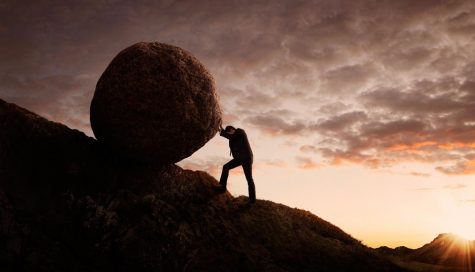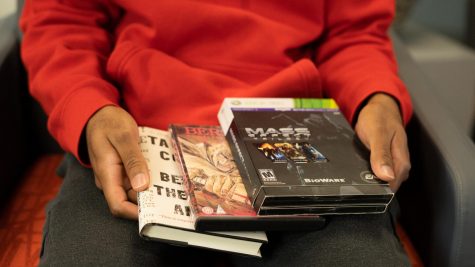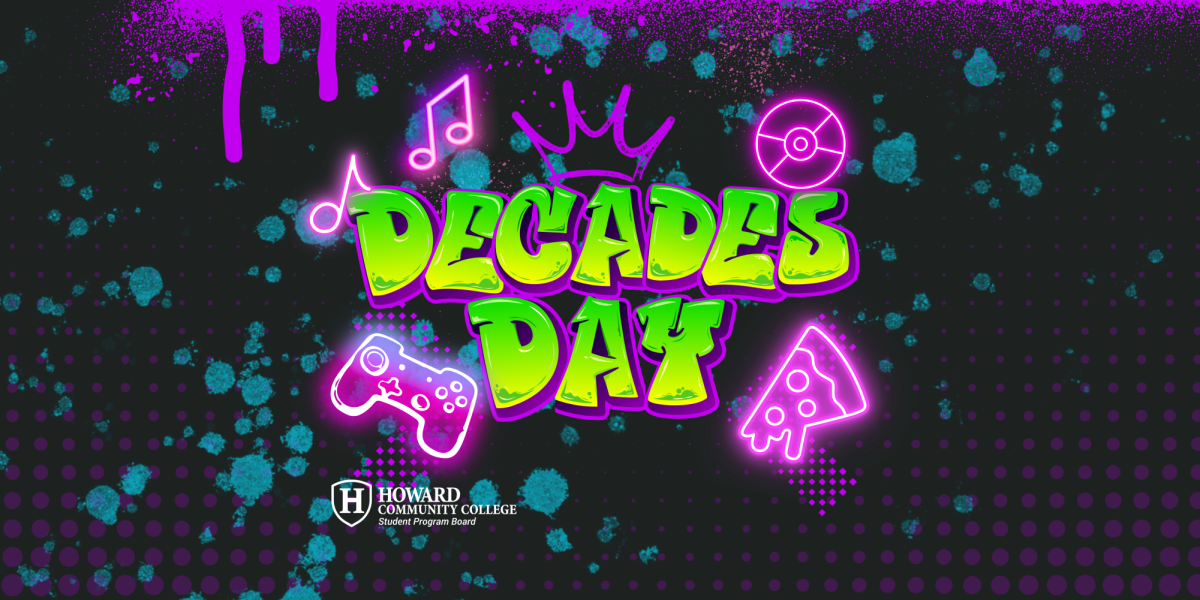Ruminations During Quarantine
July 15, 2020
Boy, you gotta carry that weight
Carry that weight a long time
— The Beatles, “Carry That Weight,” Abbey Road

Life is hard. Sometimes, it seems, without any rhyme or reason. It sounds simple enough that I could end the article right there, but the problem arises concerning how one deals with the innate difficulties of life and why they should be dealt with in the first place.
Despite all our wisdom and intelligence as a species, one may think we are simply a bunch of bumbling idiots falling over the same questions. Questions such as: Why do we exist? What is the purpose of it all? Why are people the way they are? Why do we suffer? For answers to these intrinsically human questions, some people look to an invisible man in the sky known as God, some denounce the idea of God and repudiate those who worship Him, some look to the sciences or the arts, and some reject everything and revel in the deep dark.
I cannot answer these questions myself. However, in dealing with them, I often refer to the Greek myth of Sisyphus, upon which the philosopher Albert Camus based his essay “The Myth of Sisyphus.” In the myth, the gods punish Sisyphus by commanding that he push a boulder up a hill only for it to roll back from whence it came. He goes through this every day, for all eternity.
Sounds rough, right? Almost meaningless, and it is, at least inherently. There is no meaning in his trudging, just as there is no meaning to struggling through a similarly monotonous quarantine (other than the obvious scientific and moral reasons). In “The Myth of Sisyphus,” Camus comes to the ultimate realization that meaning isn’t given by God, by parents, or by society– it is made by us.
In Plato’s “Crito,” the great Socrates faced execution after an unfair trial. Despite Socrates’ unfortunate circumstances, he did not waver in his moral convictions by giving into his pupil Crito’s suggestion of a jailbreak. Instead, in Plato’s “Phaedo,” Socrates accepts death with an ethereal calm that would unnerve most people, including myself. We cannot always control our external circumstances, but we can decide how we will face the beast of darkness hanging over our lives, as Socrates did.
I must admit that I am not as moral as Socrates, especially when it pertains to how I face injustice in my life. The point is we need — now more than ever — something to guide us through the ever-pervasive clouds of despair and ruin.
I have mostly kept to referencing material of the Western sort — seeing that I am a product thereof — but I believe we can learn a lot from East Asian countries as well. We can learn from their collectivist mindset — in contrast to our individualism — in the face of a disabling, invisible force which requires the strength and full cooperation of an entire civic body, and not just every ligament for itself. Although the individual is of utmost value and should not be dismissed, individuals can harm themselves and others by placing themselves too high above the needs of the society. An army of Icarus-minded individuals falls under the same sun.
No matter the myriad challenges we face in our daily lives, we still owe it to our most vulnerable neighbors — the elderly, the immuno-compromised, the essential worker — to give them the best chance to live another day. This means wearing face masks, social distancing, washing hands and staying home whenever possible.
Every challenge, until our last, prepares us for the next. That is not to say trauma makes us stronger; in fact, there is budding research on the contrary. What is usually different between those who do persevere through hardship and those who do not, is that those who do have most likely been loved and supported in the early stages of their development. This gives the loved person an advantage over the unloved person, for it gives the former the tools necessary in order to face the world and its cruelties. But still, the reality of the world cannot be denied. Whatever one’s upbringing, one must find a way to live.
I am of the Buddhist disposition that life is suffering. To borrow a word from Flannery O’Connor’s “A Good Man Is Hard to Find,” there is a certain “meanness” about the world. Not in the normative sense, but in the way the universe bears an eerily indifferent gaze upon our species. The sun does not care whether people are suffering and dying because of a virus– it will rise the next day all the same. The birds will continue to chirp as the day begins and ends; the squirrel, in its pursuit of the sacred nut, will scurry up and down the trunks of trees.
It feels like a seismic blow to the ego that, despite our best efforts and our many advancements, we do not matter much in the grand scheme of the world. However, with a shift in perspective, one may see there is a sense of freedom to be had in such a sentiment. I think, if my existence is truly not that special, and I will be met with the burden of pain in life regardless of how I perceive it, then I have the ultimate decision. The ultimate decision as to whether I suffer under the conditions of life or repurpose it to be as free and authentic as morally possible with the finite amount of time I have on this lump of floating rock.
Another sort of meanness exists in this world, and that is the meanness of man. Even though a person may pride themselves on their superior morality, everyone holds a capacity to be horrible. I enjoy the thought that I am a decent person, but there have been quite a few times where I have displayed such a capacity to be horrible that looking back in my mind’s mirror was difficult to grapple with.
The psychologist Carl Jung might refer to this as the “shadow” — the part of the unconscious self that holds suppressed or shameful beliefs and desires. Though Jungian psychology is not as popular as it once was, I find the concept intriguing. It is like when you see someone on the news who has committed an unforgivable act, and you might think that person is a “monster” or what they did is “inhumane.” While these lines of thought may well be true, I would argue that the capacity to be horrible is innately human.
I am not saying we should value ethical acts in the same vein as we do deviant ones, or deviant behavior should go unchecked or unpunished — quite the opposite. By acknowledging the deviant, one may realize the darkness within themselves and how it may rear its ugly head in unconscious ways. I wrote a poem based on this idea, called “The Demon”:
Oh my, oh my, take a look at that little demon inside
How it tries to bury itself down and under and hide
How it builds lie upon lie and works to divide
Until, by the outside’s rules, it can no longer abide
There it is, look at it, growing burdensome and wide
Look at that spiteful demon,
Swelling up with rapturous pride
Look at that raging demon,
Shedding its despised hide
It runs rampant and free
Remember, fellow man
Accept the demon within
Otherwise it will only ever say goodnight,
Never goodbye
This idea is especially relevant in the time of the pandemic, when people, this late into the game, are going into public areas without masks or are purposely coughing into other’s faces. We as humans can be horrible, but we do not have to be. We always have the choice as to whether we add meanness to an otherwise already miserable world, or we can, in recognizing our common faults, work in coalition to relieve each other’s pains and sufferings. True strength does not lie within the superhero image of the person who always does well because it is in their nature to do so, but within the person who can perfectly add to the misery of the world and chooses not to.






